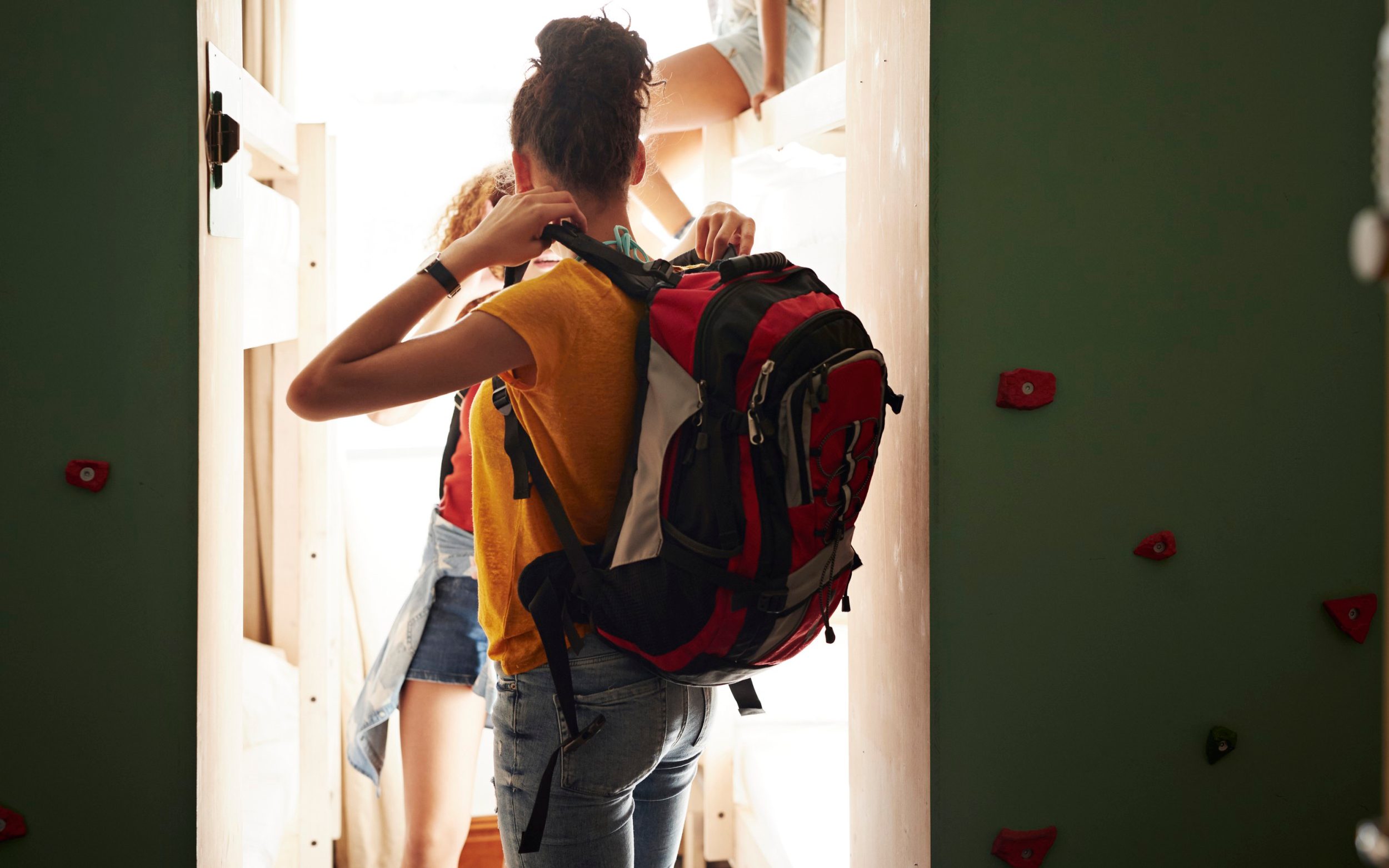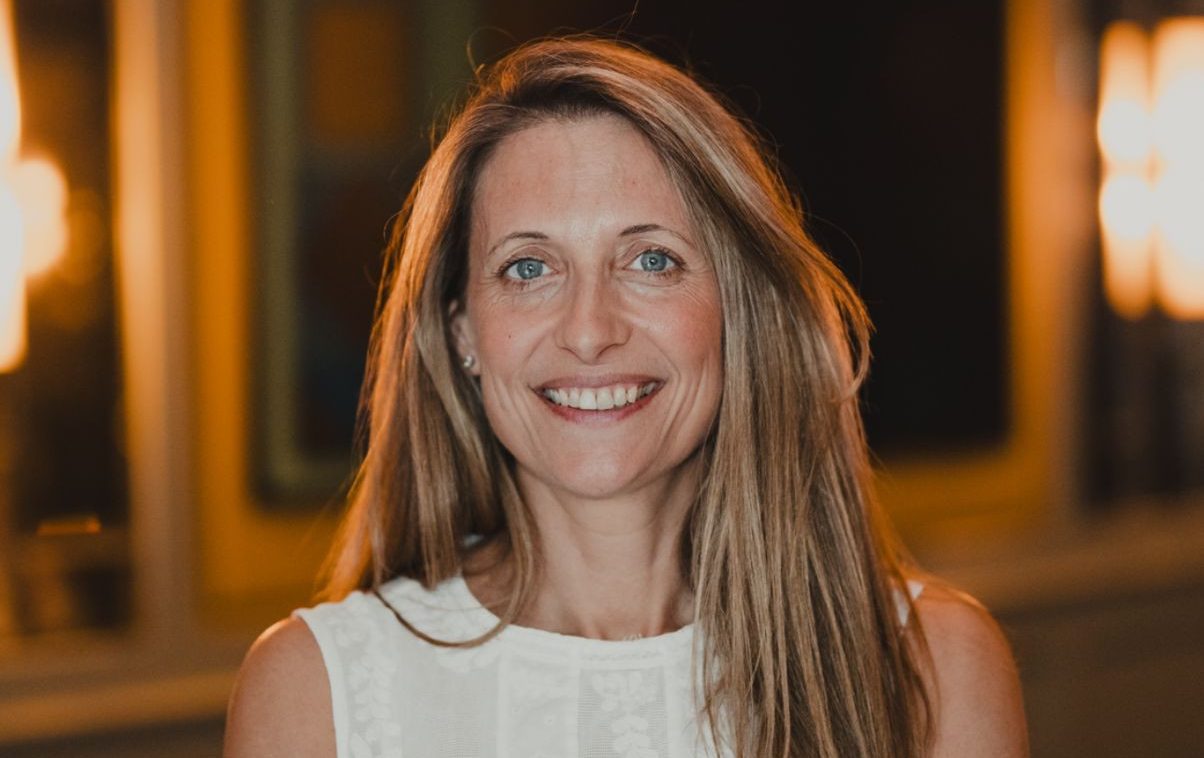
When Dan Gregson’s sons, 18 and 15, asked to go on their first trip without adults, the 49-year-old teacher says he felt “very worried” – and this was just to a skatepark in central London. Trips abroad with just their friends have been off limits, until now. His eldest son is going to Barcelona with friends and no adults next month.
“I know he’s sensible, it’s just other people I worry about,” he says. “I worry that someone around him will start an argument. I went to Spain when I was 16, but it feels like the world has changed. There’s more aggression in the air now.”
with a friend.
While some, Allsopp included, believe such trips can be the making of a teenager, for others, it’s a nightmare scenario.
Indeed, it has now emerged that social services have questioned the TV presenter over her decision to allow her youngest child, Oscar, to travel for three weeks on the continent - demanding to know what “safeguards” she had put in place.
Allsopp described the move by the Royal Borough of Kensington and Chelsea (RBKC), her local council, as “Orwellian” and “absolutely outrageous”.
“I have broken no law and nothing about allowing my child to travel around Europe is neglectful,” she said.
Earlier this week, she had posted on X, formerly Twitter: “My little boy has returned from 3 weeks inter-railing, he’ll be 16 on Wednesday so he went with a mate who’s already 16 due to hostel/travel restrictions, but they organised the whole thing; Paris, Brussels, Amsterdam, Berlin, Munich, Marseille, Toulouse, Barcelona & Madrid.”
She went on to add: “in this increasingly risk-averse world it’s vital that we find any ways we can to give our children the confidence that only comes from trusting them. If we’re afraid our children will also be afraid, if we let go, they will fly.”
Gregson says for him the first question is “why do they want to go away alone?” He says it’s important to build these things up and he takes a “slowly slowly” approach to reduce the anxiety for everyone.
In his view, 17 is the youngest possible age a child should leave the country without an adult and “18 is even better”. He will have strict rules for his son while he’s away to text him every day as “that’s something in-built because we do it at home anyway”.

But many other parents take a more open-minded view. Kate Row-Ham, 48, a personal trainer from Brighton, let her eldest son (now 18) go to Newquay with six friends when he was 15.
“I think it all depends on the person and their level of maturity and how far they are going,” she says. “I think a confident, streetwise teenager could be fine from the age of 13. I was nervous when my son first went away after his GCSEs, but with apps like Snapchat and Life360 it makes it much easier to stay in touch with them.”
Row-Ham has since let her son go to Ibiza and Mallorca with friends, and is gearing up to let her 15-year-old daughter go to Newquay with her mates next summer.
“I’ll give her the same advice I give my son which is to keep her phone on, call me if you have any issues, never let anyone buy you drinks, and to never leave your wingman/woman,” she says. “I also remind them how important it is to enjoy themselves and have a good time. It’s good to give kids confidence and let them know you trust them.”
Legally, children over the age of 12 can fly with parental consent, but there is no minimum age to travel on the train alone in the UK or on an Interrail pass in Europe.

“As parents we all want some definitive age when it will be OK, but it all comes down to the individual child and parent, and the relationship between them.”
Mathur says things parents should consider include their child’s friendship group, how far away they’ll be going and what their child’s personality and life experiences are like. “If it were a teenager with a large group of friends who I didn’t know and who is quite immature and might not cope when those relationships come under pressure on holiday, I wouldn’t feel comfortable letting them go,” she says.
But Mathur also points out that it’s important to look at your anxiety as a parent and question where the fear comes from. “Is it a valid fear or is it a projection of something that happened to you?” she asks. “It’s important not to let your own hang ups stop your child from enjoying freedoms which they might actually deal well with.”
Mathur says ground rules are good but don’t make them too restrictive. “It has to be a collaborative agreement otherwise you’ll just get pushback.”
For some parents there are compromises to be made. Harriet Morley from Hampshire let her 16-year-old daughter go away with three friends to a house in Wales. “But I knew the owner of the house and she knew people close by who could keep half an eye on them,” she says.
Interestingly, Morley says she probably won’t give her son the same freedom when he is the same age. “My daughter is very sensible and I knew that her and her friends would respect the house,” she says. “They’ve earned our trust to allow us to let them have this adventure.”
But if you do say no to that post-exams trip to Magaluf, expect some heavy disappointment. “Even if you explain to your teenager really clearly why they can’t go, they’ll probably still be angry and upset,” says Mathur. “But that’s OK– it’s important to hold those boundaries for your child. And to know that you’re not saying ‘no, never’ you’re saying ‘not yet’.”
Kate Row-Ham says her own teenage holidays to Cornwall were “amazing experiences” and she would hate to deprive her children of that. “They have to learn some life lessons themselves.”


Post a Comment
0Comments